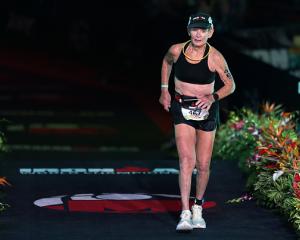The revamped Otago championships at the weekend proved successful with the highest standard of swimming seen at Moana Pool for 20 years.
There was a buzz about the pool that was last felt when the New Zealand open championships used to be held in Dunedin.
The combined Otago and Canterbury championships came about because of the earthquakes that wrecked the 50m QE2 pool in Christchurch. Canterbury and Otago officials had different approaches but were able to find their provincial champions using both systems.
A total of 495 swimmers from 35 South Island clubs competed in the five-day meet.
"We will review the championships and make any changes that are needed," meet director Kay Alexander said.
"There will always be small changes and we will try to satisfy everyone's needs. Our job is to make sure that the competitors can swim fast times and achieve their goals."
Ashburton head coach Carl Gordon liked the concept.
"I've talked to the other coaches about the prospect of growing this concept a bit larger, so that it becomes a South Island, as well as regional, championships," he said.
He thought regional medals should be given out for the morning heats and South Island medals in the evening.
Doing so would teach swimmers to race hard in the morning heats and hard again in the evening session.
"In New Zealand we have traditionally struggled to back up twice in a day," he said.
Canterbury administrator Chris Lawson would also like to see the concept expanded into a full South Island championship.
Gore coach David Prattley said the championships had been good for his swimmers.
"We have got the opportunity to bring the whole of the South Island together in a long-course format," he said.
"It gives us the opportunity to see close racing at all levels in the night sessions."
Otago's top senior swimmer, Kurt Crosland, has benefited from the concept by breaking four Otago men's open records.
"It's cool having heaps of people here," Crosland said. "It gives us a bit more competition and makes you step up a bit more.
"Having swimmers around me made me go a lot harder. The South Island standard has been down over recent years and this will raise the bar by bringing more competition."
Waves coach Andy Adair admitted there had been some teething problems.
He prefers the Canterbury approach of scoring the provincial competition off the morning session.
"They were able to put their results up quickly so everyone knew the team scores," he said.
Adair said Otago complicated it by deciding the medallists and the club points off the finals.
"We missed the periodic announcement of team scores," he said.
He said the intense competition at night had been a plus.
"We had great swimming at night because the best swimmers in Otago faced the best swimmers in Canterbury and the rest of the South Island," he said.
"We need quality long-course meets in the South Island and this was a trial to see how it worked."












